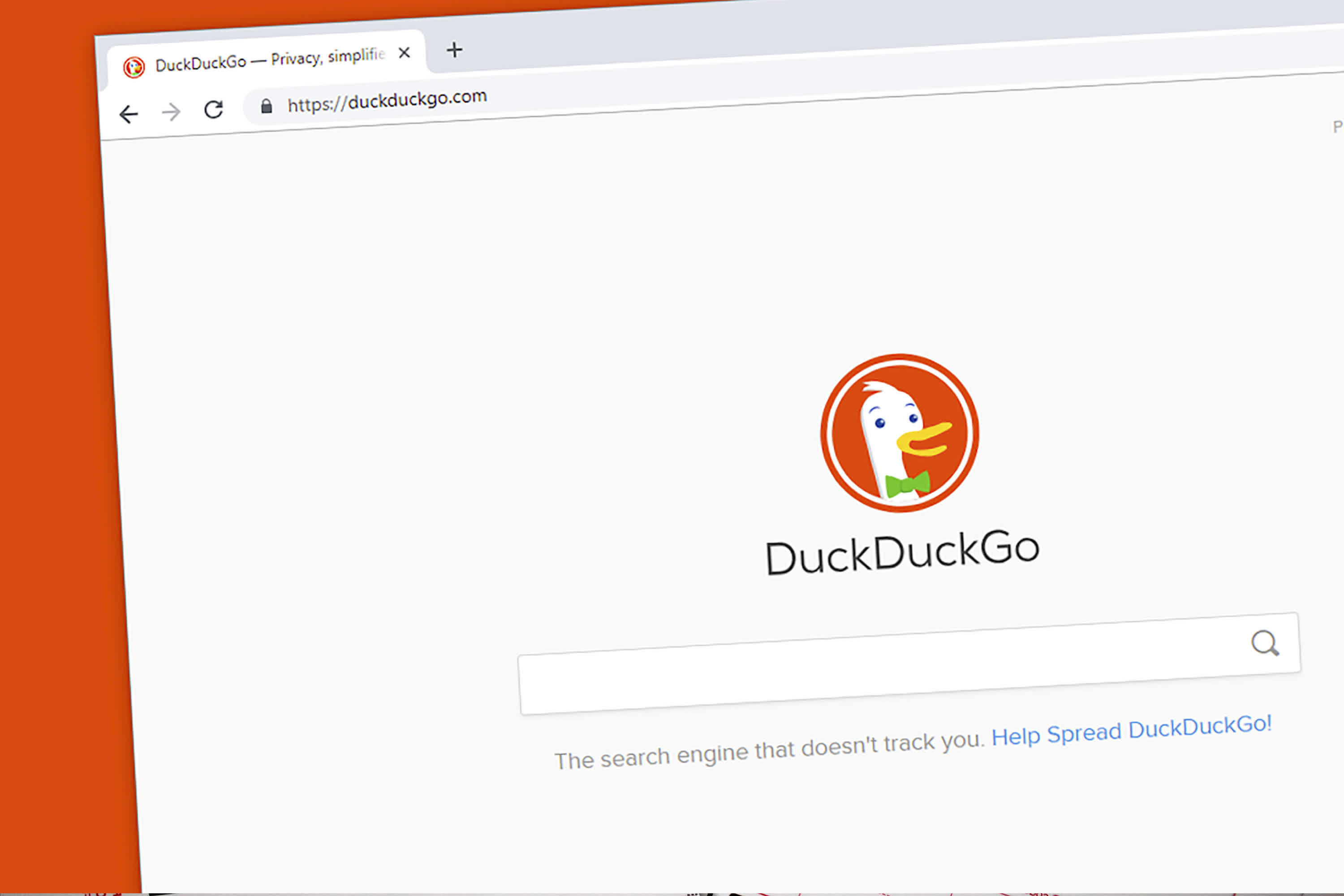Reinventing the search engine in the age of privacy concerns
- People also search for.
- As its name makes it quite apparent, the extension is developed by the same team behind DuckDuckGo, and it aims to provide you with all the necessary tools to always be in full control of how your.
DuckDuckGo (DDG) sets itself apart by taking a quality over quantity approach. Where a search engine like Google uses your personal data to curate search results, it does so to help drive targeted advertisement revenue. DDG does no such thing. It doesn’t collect or track your data and aims to provide the same search results no matter the searcher. By taking the personalization out of the equation it delivers search results purely on the merits of the engine. DDG claims to use more than 400 sources for its results which include vertical sources like Yelp for restaurant searches, its proprietary DuckDuckBot crawler, and crowd-sourced sites like Wikipedia. The UI is pretty similar to the Google of old so will feel familiar to everyone. You can search web, images, video, and news. They also make a Chrome extension if you want the privacy features of DDG but the search of Google. All in all, it’s an excellent search engine whose fundamental privacy niche offers a great value proposition.
5,001 likes 15 talking about this. Search anonymously. DuckDuckGo is a search engine that does not track you and, has more instant answers and less spam/clutter. DuckDuckGo Help Pages. About DuckDuckGo. DuckDuckGo is the Internet privacy company for everyone who’s had enough of online tracking and wants to take back their privacy now. For over a decade, we’ve created new technology and worked with policymakers to make online privacy simple and accessible for all. DuckDuckGo was founded by Gabriel Weinberg on February 29, 2008, in Valley Forge, Pennsylvania. Weinberg is an entrepreneur who previously launched Names Database, a now-defunct social network.Initially self-funded by Weinberg, DuckDuckGo is advertising-supported, but the user has the option to disable ads. The search engine is written in Perl and runs on nginx, FreeBSD, and Linux.
A real contender for the most effective search engine
DDG delivers a back-to-basics search function powered by unbiased content
DuckDuckGo has steadily carved out a place among the top search engines since its debut in 2008. The fervor and sense of the DDG mission clearly resonate with users across the internet. DDG’s mission is simple: Too many people believe that you simply can't expect privacy on the Internet. We disagree and have made it our mission to set a new standard of trust online.With a new headline almost every day about data breaches and the ethical concerns of internet behavior tracking, people have been turning to DDG. What started with an idea of a better search engine that doesn’t track search history has seen exponential growth to an anticipated 14 billion searches for 2019. But how effective is it? How does the search engine work differently than the norm (Google)?
It's all about sources. DDG doesn’t want to simply provide links to users, it wants to provide answers. Finding an answer to a specific question is the most common use case for search engines. One of the ways DDG accomplishes this is by the Instant Answer function. The premise behind the Instant Answer is that specialized sites such as Yelp, MetroLyrics, and StackOverflow do a better job at answering searches for their respective genre (restaurants, song lyrics, programming questions). Instant Answers appear at the top right of the screen after a search. They are informed by a number of different sources. Wikipedia answers many of them. DDG also has an open source community called DuckDuckHack that allows contributors to add answers to common questions. Additionally, DDG has an intelligence engine that selects the optimal sources for a particular search and displays answers in real time (recipes, products, images, etc). Traditional links in the search results use the Yahoo-Bing engines, among other sources. It earns money by working with ads from the Yahoo-Bing network and by a relationship with eBay and Amazon.
The !bang syntax is another differentiator and one of DDG’s coolest features. It’s similar to those Google results that display multiple links from the same site – Quora, Reddit, etc. !bang allows you to execute a search on a specific website. For example, if you wanted to see a list of all the first generation Transformers toys for sale on eBay, you could simply type in “!e transformers g1” in the search bar. This really helps minimize the need to leave DDG. You can directly search more than 12,000 sites from the DDG page.

Two additional services aim to fulfill the DDG privacy mission beyond the core search engine.
- -A Chrome extension exists for those who can’t extricate themselves from the Google ecosystem and want to use Chrome. Once installed, the extension blocks advertising trackers and keeps your search history private. It also increases your encryption protection by forcing sites to use an encrypted connection where available, protecting your data from ISPs.
-They have a privacy knowledge base. DDG wants users to understand the privacy dilemmas in the modern internet and offers a variety of articles on protecting your privacy, crash courses and how-to guides, and academic research on privacy.
Where can you run this?
The DDG search engine runs on any browser. Privacy enhancing extensions for Firefox, Chrome, and Safari can also be installed. Note that these work on Opera and Vivaldi too. They also make a mobile app browser for iOS and Android users that scores pretty highly for its intuitive UI across the Apple and Google Play stores.
Is there a better alternative?
While DDG is the most popular private search engine there are a handful of options that offer similar angles. Search Encrypt focuses on encrypting every part of a user’s search. It can be used from its website or as a browser extension and does not have its own search engine per se – it uses other engines to drive its results. StartPage leverages the Google search with some privacy enhancements like a URL generator to eliminate the need for cookies. Swisscows not only offers privacy but a totally unorthodox search methodology in its use of machine learning to derive results. When you execute a search you’re presented with the usual listing of links but on the righthand side of the UI shows a tiling of related subjects that you can continue to search.
Our take
It is a compelling alternative to the big search engines. Privacy is one of those ethical dilemmas where the outcome of all this personal data tracking might be hard to predict, but if it comes to a head, you know the consequences will not be positive. DDG also works well as a search engine, ethics aside. The sources it uses, the Instant Answer platform, the !bang function, that it relies on unbiased information in its calculations: these are good things. The extensions also add value if you don’t want to use DDG directly, and the fact they have a privacy knowledge base means the DDG leadership practices what they preach.
Should you download it
Give it a shot. Unless you love targeted ads and the specter of Google knowing everything about you, the risk/reward ratio here favors a use of the engine, and an extension or app download.
Highs
- Privacy protections
- Unbiased search results
- Privacy library
Lows
- Alternatives can offer better security through encryption
DuckDuckGofor Windows
1.0
Gabriel Weinberg is the founder of DuckDuckGo, a search engine that relieves the pain points we find in the major search engine players… we’re talkin’ ‘bout you Google and Bing!
Seriously cool features include:
- NO Tracking- DuckDuckGo does not collect or share your personal info. Excellent.
- NO Bubbling- DuckDuckGo does not customize search results based on your Web history. Rad.
- !Bang Syntax– This feature allows you to search hundreds of engines or query types at the same time. Perfect.
I caught up with Gabriel for the first edition of The Startup Sit Down, to get the scoop on the life and times of DuckDuckGo, the inspiration behind the startup’s hatching, and how pool parties keep up team morale.
What’s DuckDuckGo all about and what makes it stand out from the competition?

Gabriel Weinberg: DuckDuckGo is a general search engine. We focus on having way more instant answers, way less spam/clutter and real privacy.
Tell us a little about where you’re coming from.
GW: I grew up in Atlanta, GA and went to MIT. After college, I went right into Internet startups. After several failed projects, I ran a successful company that was sold in 2006. That was all in Boston. Then I moved to Philadelphia where I live now and where I started DuckDuckGo.
How was DuckDuckGo hatched, and what really sparked the inspiration?
GW: I was pursuing a number of projects around structured content, really out of personal interest. I had noticed that Google seemed to increasingly have a lot of SEO spam. I also noticed it didn’t seem to be using crowd-sourced sites like Wikipedia particularly well. So I really started out trying to launch anything that addressed those two issues.
Biggest startup surprise (good or bad) so far?
GW: I made the decision to stop storing IP addresses and by extension not track users when it was much less of a mainstream issue. I believe that when people know about the issue, like we’ve tried to educate on Don’t Track Us and Don’t Bubble Us, a large % of people agree with our point of view. However, I was surprised and am grateful that there has been an increasing amount of media attention on this subject.
One thing you would have done differently?

GW: I really don’t have any major regrets right now. You can make the argument that I should have taken DuckDuckGo more seriously earlier, and dropped everything else I was working on. It took a bit of time for it to be my 24/7 thing.
What is DuckDuckGo’s success sweet spot?
GW: I’m hoping it will be DuckDuckHack. This is our new (but a long time in the making) open source platform for developers to make instant answers plugins for the search engine. I’d love to see instant answers for the vast majority of queries.
Do you have any interesting team morale-building/stress-busting techniques?
Www.duckduckgo.com

GW: Still learning on this one :). I think that when people have ownership of their projects and wide flexibility to attack them as they see fit, they produce the best stuff. Also, we just had a pool party!
Favorite tech tool?
GW: Multiple monitors. I’m constantly messing with the configuration, but I think a lot of screen real estate is key to my productivity. It isn’t for everyone, but I like to have a lot of server windows open.
What’s your “man, I wish I would have thought of that” startup and why?
GW: I’m more struck by things that I stopped pursuing that ended up being successful in other startups. For example, I had worked on something that worked like Tumblr/posterous many years ago, but just didn’t stick with it.
Duckduckgo.com Search Engine
Parting words of wisdom for startup newbies and wannabies?
GW: I have a lot of long-winded advice on my blog: http://ye.gg/blog. The short version is http://ye.gg/advice. The shorter version is don’t overthink it–get out there and do. The shortest version is no excuses.
Thanks Gabriel for being The Startup Sit Down’s guinea pig. We’ll be sure to check out DuckDuckGo and give it a proper search shot.
Good Luck!